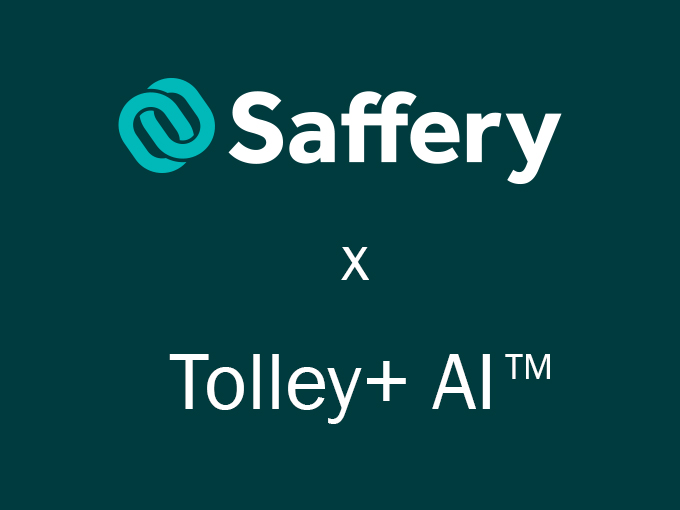The use of employee share schemes continues to be a popular remuneration tool.
Some of the key benefits of employee share schemes are:
- Incentivising employees to achieve better performance;
- Attracting and retaining staff, particularly in start-ups, where companies have insufficient cash funds to provide market-leading salaries;
- Enhancing remuneration packages, where this can be achieved tax efficiently;
- Succession planning for major stakeholders; and
- Raising equity funding, particularly in management/employee buy-outs.
There are a number of options to consider when looking at the best form of an employee share scheme for your business. An approved scheme has distinct tax advantages over an unapproved scheme, but can be less flexible, and there are qualifying rules for both employees and employers.
Share options are often used, as there will generally be no tax charges arising until the option is exercised, whilst the direct award of shares can result in an up-front tax charge. However, by owning shares up-front, employees are able to benefit from having voting rights and entitlement to dividends for example – benefits that they would not have as merely an option holder.
Approved share options
An approved scheme can be less flexible than an unapproved scheme. However, the use of an approved scheme can have significant tax advantages for both employee and employer. Capital gains tax (CGT) rates on share sales are currently 20%, falling to 10% where Business Asset Disposal Relief (BADR) applies, while the highest rate of income tax is currently 45% and rising where employee and employer National Insurance contributions (NICs) apply if the shares are considered to be readily convertible assets (eg where the shares are readily convertible into cash or where the shares are in a subsidiary of an unquoted company such that the acquisition of the shares does not attract a corporation tax deduction).
Enterprise Management Incentive (EMI)
Enterprise Management Incentive (EMI) options are still the ‘gold standard’ for share rewards, being flexible and having very advantageous tax rates available. In many cases, other share rewards are only used where EMI is unavailable, where the conditions cannot be met for example.
Key features
- An individual can be granted up to £250,000 of options;
- Options can be granted at a discount to market value (but income tax will be due at exercise on the discount); and
- Specific BADR rules for EMI options allow the holding period requirement to start from the date of grant.
Limits on EMI
- A company limit of £3 million on the value of shares over which unexercised options exist (again, determined at the time of grant);
- The company must be independent and must have gross assets of less than £30 million and less than 250 full-time employees (or equivalents) at the time of grant;
- A company cannot grant EMI options if it is carrying on certain excluded trades. This includes dealing in land or shares, banking and insurance, and property development.
Company Share Option Plans
There are no limits on company size or number of employees unlike EMI, which allows Company Share Option Plans (CSOPs) to be used by larger companies, listed organisations and those whose trade is outside of EMI limits, such as accountancy, banking etc.
A CSOP is a more restrictive regime than EMI in that:
- Options must be granted at market value;
- Each employee can only be granted up to £60,000 of options; and
- The gain is only exempt from income tax if the options are held for at least three years.
They are popular with larger corporates and often used a sub-plan for UK subsidiaries of overseas groups of companies.
Unapproved options
As with approved options, there is no initial tax cost up-front. Any gain on exercise will be taxed as employment income and these are typically used as top-ups to approved schemes.
Approved all-employee schemes
There are two all-employee approved share ownership plans; the share incentive plan (SIP) and the save as you earn (SAYE) scheme.
SIPs allow employees to acquire shares from pre-tax income, with employers able to top up these awards. The shares are then held in trust for a minimum period and, when taken out after the required holding period, can be sold or retained without an income tax charge arising. If shares remain in the plan until they are sold then there is also the benefit of no CGT being due.
The SAYE scheme is a savings plan where employees can purchase shares at a discount of up to 20% on funds paid into a savings plan over a three or five-year period without an income tax charge arising from the acquisition.
The all-employee nature of these plans can make them difficult to implement, but in our experience, they have a good track record of incentivising and retaining staff.
Direct share acquisition
The future increase in value will, in most cases, be treated as a capital gain, but if market value is not paid on acquisition, the discount will be treated as a taxable amount subject to income tax.
Nominal value needs to be paid if shares are not to be treated as partly paid. If shares are not currently considered readily convertible at acquisition, the discount will not be subject to PAYE/NICs but instead taxable via self-assessment, unless the company is under the control of another company.
These are often used where voting rights are valued and where there is a likelihood of future dividend payments.
Care needs to be taken where the shares acquired are restricted, that additional income tax charges will not arise at a later date when the restrictions fall away or are deemed to have fallen away at the point of sale.
Growth shares
This requires a new class of shares to be created, where the shareholders are only entitled to a distribution of capital on a sale once a particular financial hurdle has been achieved. Where this hurdle is considered to be a stretching target, it allows a significant discount to be applied to the initial market value of the shares, so reducing the market value at award down to a typically nominal value. Any further increase in value would then be taxed as a capital gain.
The process of setting the appropriate hurdle and valuing the new class of shares can be complex. As this hurdle will be an inherent characteristic of the share class, it will need to be included in the company’s Articles. Some care will need to be taken to reduce potentially sensitive material as the articles would be available publicly.
Once created, the new class of shares can be used for share option awards, such as an under an EMI scheme.
Growth shares are typically used in companies where the acquisition price of ordinary shares is quite high, so making better use of limits under approved schemes or reducing the acquisition cost for employees who acquire shares.
Jointly owned shares
Jointly owned shares are an alternative route to growth shares, and one used by listed companies and companies where it is not possible to create a new class of shares.
This involves an employee and an Employee Benefit Trust (EBT) jointly owning a share, where the trust is entitled to the initial value and the administrative costs attributable to the running of the trust (the ‘carry costs’) and the employee is entitled to the majority of the future growth. This is a complex arrangement that requires a detailed legal agreement and valuation work in determining appropriate hurdle and carry cost levels and their impact on tax valuation, as well as the setting up of an EBT.
However, it does allow the employee to acquire an interest for a low cost, and have the future increase in value taxed as a capital gain on exit without creating a new class of shares.
Business Asset Disposal Relief
Where an employee owns 5% of the share capital (by voting rights, number of shares, dividend rights and disposal proceeds), providing they own the shares for at least two years prior to sale, they should qualify for BADR and a lower 10% rate of CGT.
While for unapproved options and CSOPs this would require the employee to exercise the options two years before any sale, there are special rules for EMI options that treat the holding period as counting from the date of grant, so they can exercise immediately prior to an exit event and still be entitled to the lower rate of CGT.
Employee Ownership Trust
An Employee Ownership Trust (EOT) goes even further than most of the planning above and gives the employees a controlling interest in the company though a trust-based arrangement. This is very efficient for succession planning, as the departing shareholders can sell their shares to the trust and have no CGT liability, while the employees can acquire an interest indirectly, without having to use their own funds. Once set up, the company is able to pay tax-free bonuses to employees of up to £3,600 a year.
Share valuation
Though the act of determining the market value of a share in a listed company is fairly straightforward, the process is very different and more complicated for private companies.
In many cases there will not be external transactions to base the valuation of a private company on, so the share valuation process will require a valuation to be determined from financial records. This is a complex area with differing methods of valuation and with the potential for discounts to be applied to minority shareholdings, as the value for a small shareholder can often be worth less per share than that of a controlling interest.
Valuation is a key part of the share reward process and should not be considered an afterthought.
If you have any further queries based on the points discussed, please get in contact with Sean Watts.
Contact us
Partner, Bristol
Key experience










